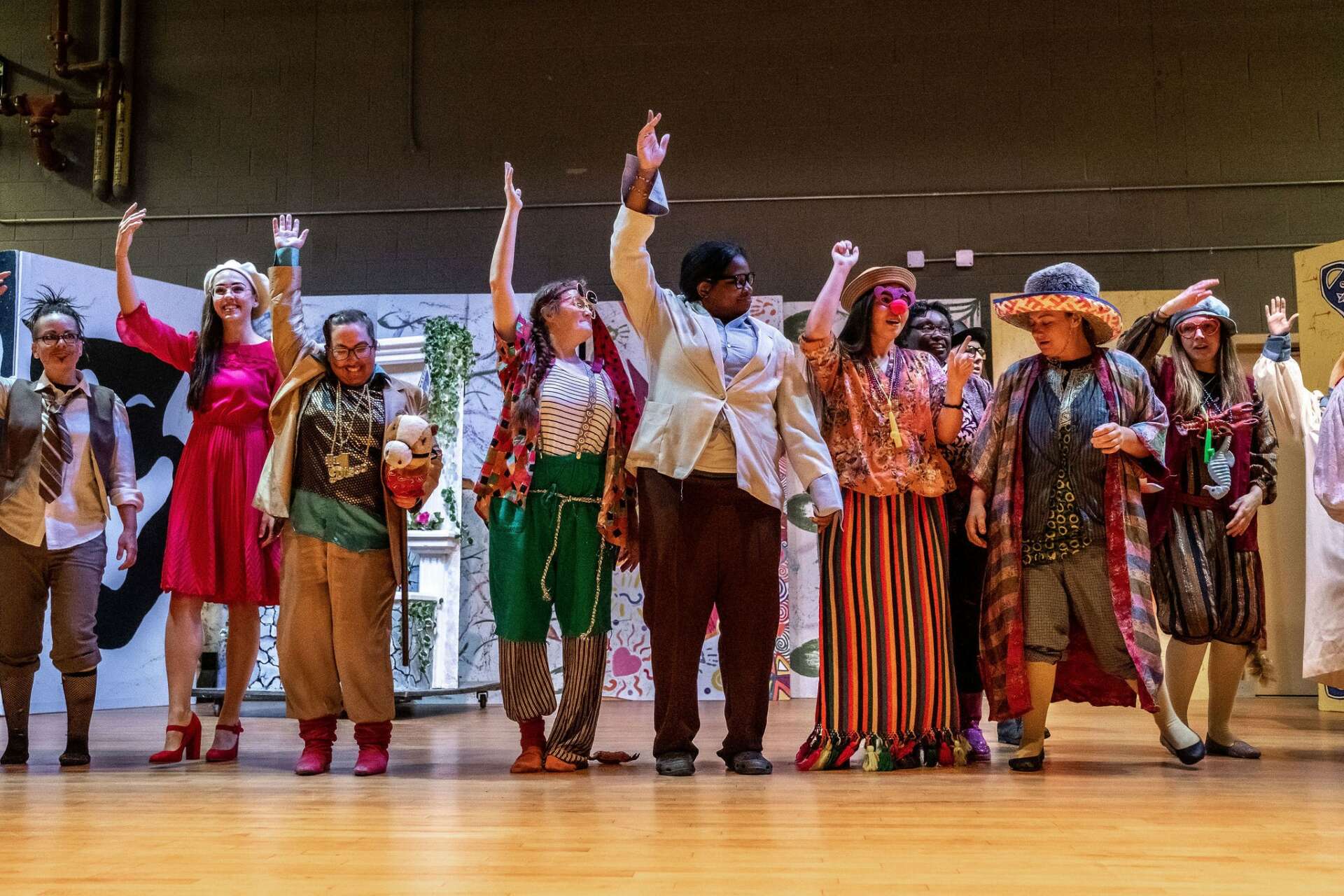We caught up with the brilliant and insightful Frannie Shepherd-Bates a few weeks ago and have shared our conversation below.
Alright, Frannie thanks for taking the time to share your stories and insights with us today. What’s been the most meaningful project you’ve worked on?
On February 7, 2012, I walked into the auditorium at Women’s Huron Valley Correctional Facility for the first time to gather with an ensemble of women who were incarcerated there and see if working with theatre, specifically Shakespeare, could have a positive impact on their lives. As the members of this pilot ensemble trickled in, one woman came over to me and asked, “What IS Shakespeare?” I told her that I didn’t know; that I had experience in theatre and had a knack for Shakespeare, but that I had never been incarcerated or worked in a prison, and that most existing prison theatre programs worked with men, so… I didn’t know! I asked the group to collaborate with me to figure it out. I always say (and firmly believe) that most of the best ideas in Shakespeare in Prison have not been mine. My greatest contribution, I think, has been a steadfast commitment to prioritizing collaboration over hierarchy; to responding to the needs of the ensemble rather than dictating to them based on my own worldview. SIP participants’ work is extraordinarily meaningful for them; and our work together is, in turn, extraordinarily meaningful for me.
Awesome – so before we get into the rest of our questions, can you briefly introduce yourself to our readers.
I am a theatre artist who specializes in directing, performance, sound design, and choreography—but, more importantly, I have been a prison theatre practitioner since 2012, when I founded Shakespeare in Prison (SIP) with an ensemble of women who were incarcerated at Michigan’s only prison for women. Since then, our radically collaborative program has, at times, worked with a men’s ensemble and youth in residential facilities. We expanded in 2018 to work with SIP alumni who have been released from prison.
SIP supports incarcerated ensemble members as they use Shakespeare and theatre as catalysts for empowerment and positive identity development; this work continues with support in various forms outside of prison, always tailored to each individual’s specific needs and goals. The program is always responsive to the needs of its participants, always takes their feedback and ideas into account, and is as non-hierarchical as possible, placing great emphasis on decolonizing and democratizing Shakespeare. We have developed innovative program evaluation methods, a number of video projects, the manuscript for a book (currently under consideration by a publisher), and we are embarking on our first public performance by SIP alumni (in partnership with members of UofM’s Prison Creative Arts Project Linkage Community) at Detroit Public Theatre this August.
Theatre for social justice, particularly applied theatre, is something I feel quite passionately about. I wish more training programs included this type of theatre in their curricula. Theatre can be a powerful balm and catalyst for change for people who have been relegated to the margins of society. I still work as an artist on more traditional theatre projects, but this type of theatre is my absolute favorite.

Is there a particular goal or mission driving your creative journey?
The more I’ve worked with individuals who’ve experienced incarceration, and the more I hear from them about the healing, new perspectives, and positive identity development the arts can provide in that context, the more driven I’ve become not only to continue making theatre in prison, but to making theatre for social justice more a part of “the solution” to the massive, complex problem of mass incarceration. Theatre can be useful in so many ways: providing off-ramps from the system through diversion strategies, supporting incarcerated individuals in transforming their identities, and providing a throughline and/or new support for individuals returning from prison to our communities. I’m exploring organizational partnerships and models that can help drive this aspect of the work forward.

What do you find most rewarding about being a creative?
The most rewarding aspect of my creative work is seeing how radical collaboration (read Paolo Freire’s “Pedagogy of the Oppressed” if you haven’t yet!) has made Shakespeare in Prison what it is today, and how my own artistic work has evolved for the better. I am always learning in and from the SIP ensemble and alumni. I’m sure I always will be. 


Contact Info:
- Website: www.detroitpublictheatre.org/shakespeareinprison
- Instagram: @shakespeareinprison
- Facebook: https://www.facebook.com/shakespeareinprison
- Linkedin: https://www.linkedin.com/company/82268571/admin/
- Twitter: @ShakesInPrison
- Youtube: https://www.youtube.com/playlist?list=PLVMHAWQBkExWKhPtt8AR2bH6wj8lvabmO
Image Credits
Chuk Nowak


